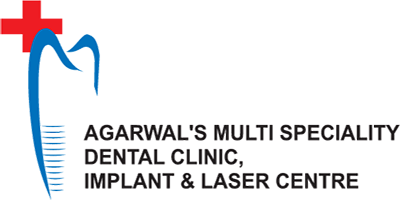A Short Overview of Dental Teeth Cleaning: The Key to a Healthy and Radiant Smile

Introduction
Maintaining good oral hygiene is crucial for overall health, and dental teeth cleaning plays a vital role in achieving this goal. Regular dental cleanings are more than just a quick polish; they involve a comprehensive process that removes plaque, tartar, and stains, contributing to optimal oral health. In this blog, we will provide a brief overview of dental teeth cleaning, highlighting its importance, procedure, and benefits in preserving a healthy and radiant smile.
Importance of Dental Teeth Cleaning
Dental teeth cleaning, also known as prophylaxis, is an essential preventive measure in oral care. It helps prevent dental issues such as cavities, gum disease, and bad breath. Despite regular brushing and flossing, some areas in the mouth are difficult to reach, allowing plaque and tartar buildup. Dental cleanings target these areas, eliminating harmful bacteria and promoting oral health.
The Dental Cleaning Procedure
During a dental cleaning appointment, a dental hygienist or dentist performs a series of steps to thoroughly clean your teeth and gums. The process typically includes:
- Plaque and Tartar Removal: Using specialized tools, the dental professional removes plaque and tartar buildup from the tooth surfaces and along the gumline.
- Tooth Polishing: A gritty toothpaste is applied to your teeth and polished using a rotating brush or rubber cup, giving your teeth a smooth and shiny finish.
- Flossing: The dental professional flosses between your teeth to remove any remaining debris and plaque.
- Fluoride Treatment: In some cases, a fluoride treatment may be applied to strengthen the teeth and provide added protection against cavities.
Benefits of Dental Teeth Cleaning
Regular dental teeth cleaning offers a multitude of benefits for your oral health, including:
A). Preventing Dental Problems: By removing plaque and tartar, dental cleanings help prevent tooth decay, gum disease, and other oral health issues.
B). Fresh Breath: Dental cleanings eliminate bacteria that contribute to bad breath, leaving you with fresher breath and improved confidence.
C). Early Detection of Oral Issues: Dental professionals thoroughly examine your mouth during cleanings, enabling them to detect early signs of oral problems such as cavities or gum disease.
D). Brighter Smile: Removing surface stains through dental cleanings can help restore the natural whiteness and brightness of your teeth, enhancing your smile.
Frequency of Dental Teeth Cleaning
The frequency of dental teeth cleaning appointments may vary depending on individual needs. Generally, it is recommended to have a professional dental cleaning every six months. However, individuals with specific oral health conditions or a history of gum disease may require more frequent cleanings as advised by their dental professional.
Maintaining Oral Health at Home
While dental teeth cleanings are crucial, maintaining oral health at home is equally important. Brushing your teeth twice a day with fluoride toothpaste, flossing daily, and using mouthwash can help keep plaque and tartar buildup under control. Regular dental check-ups, coupled with diligent oral hygiene practices, create a solid foundation for a healthy smile.
Conclusion
Dental teeth cleaning is a fundamental component of maintaining optimal oral health. By undergoing regular cleanings, you can prevent dental problems, enjoy a brighter smile, and promote fresh breath. Make sure to follow a consistent oral hygiene routine at home and consult with your dental professional to determine the appropriate frequency of dental cleanings. By prioritizing dental teeth cleaning, you are investing in the long-term health and radiance
